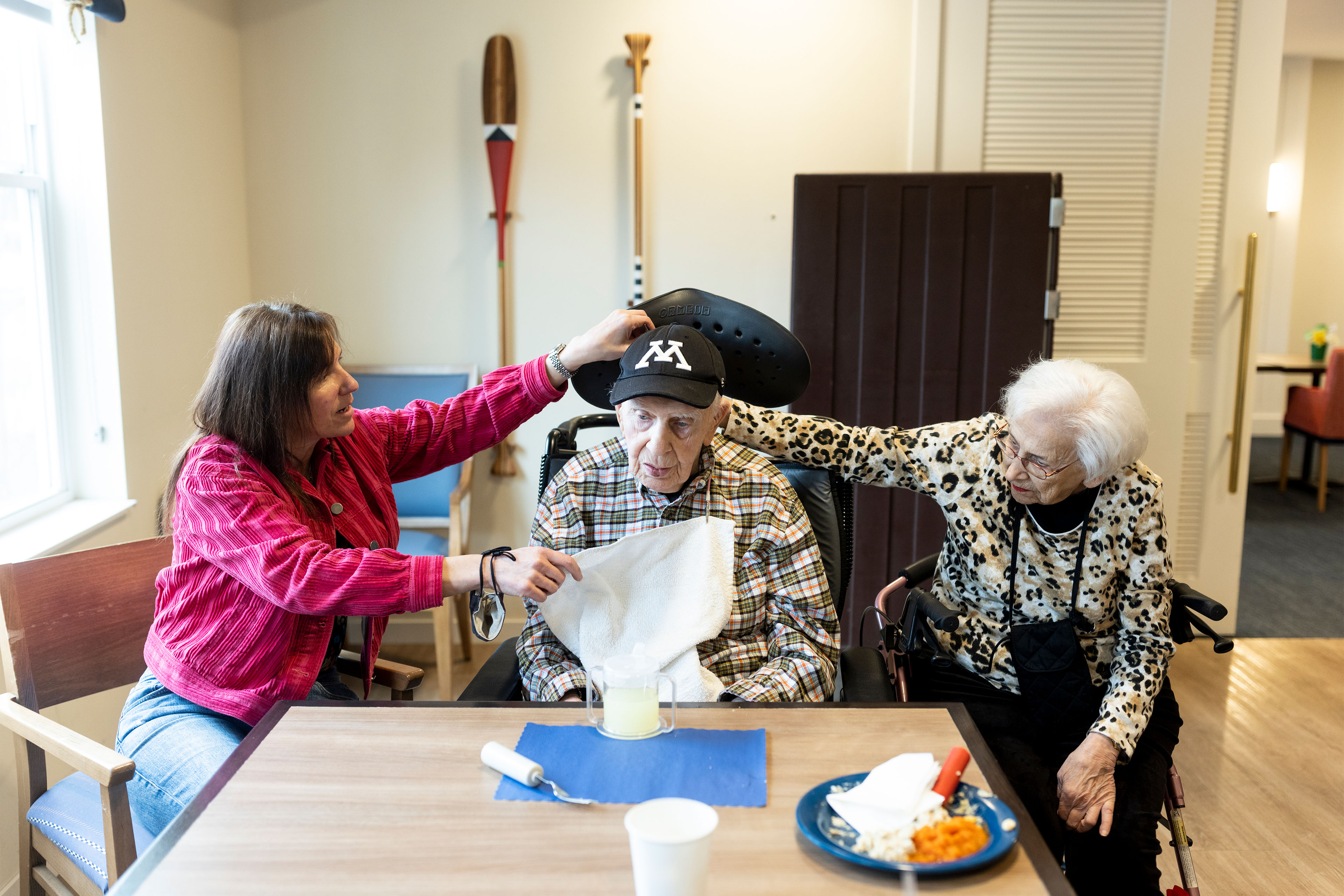The Function of Assisted Residing In Offering Specialized Look After Dementia Patients
The provision of specialized care for mental deterioration clients within assisted living facilities is progressively acknowledged as an essential component of reliable mental deterioration monitoring. These environments are designed to deal with the one-of-a-kind cognitive and emotional difficulties dealt with by individuals with mental deterioration, supplying customized assistance that advertises safety and health.
Understanding Mental Deterioration Treatment Requirements
Understanding the care needs of people with mental deterioration is important for providing efficient support and improving their quality of life. Mental deterioration is a progressive neurological problem that affects cognitive features such as memory, thinking, and communication. Subsequently, individuals with mental deterioration often call for assistance with everyday tasks, personalized treatment strategies, and emotional assistance.
Efficient mental deterioration treatment involves acknowledging the one-of-a-kind challenges dealt with by each person. This includes comprehending the phases of mental deterioration, which can range from mild cognitive disability to innovative phases requiring extensive help. Treatment requires might incorporate support in managing everyday routines, medicine adherence, and preserving social interactions to avoid seclusion.
In addition, sensory excitement and acquainted settings can considerably improve the wellness of individuals with dementia. Caregivers should be trained to determine behavioral modifications and utilize methods customized to every person's preferences and past experiences. Techniques such as validation therapy and reminiscence can help communicate effectively and foster a complacency.
Eventually, efficiently resolving the treatment demands of people with mental deterioration calls for a thoughtful strategy, ongoing training for caregivers, and a dedication to preserving self-respect and respect throughout the caregiving process.
Benefits of Assisted Living

Assisted living advertises social communication amongst residents, fostering a feeling of neighborhood and belonging. Engaging with peers can minimize feelings of isolation, which are typical in those living with mental deterioration.
On top of that, several nursing home offer assistance with daily activities, such as medication management, bathing, and meal preparation. This support allows locals to maintain their independence while ensuring their health and well-being are focused on. Inevitably, assisted living acts as a beneficial source, stabilizing treatment and autonomy for individuals with dementia and their family members.

Specialized Programs and Activities
(Dementia Care Charlotte)Recognizing the distinct needs of individuals with dementia, lots of nursing home apply specialized programs and activities designed to boost cognitive feature and advertise general health. These programs commonly consist of cognitive excitement activities that engage locals in memory games, challenges, and reminiscence therapy, which motivates the sharing of personal stories and previous experiences.
Furthermore, art and music treatment play considerable roles in cultivating creativity and psychological expression (Assisted Living). Engaging citizens in painting, crafting, or songs sessions can offer healing benefits, aiding to decrease anxiety and enhance mood. Exercises, such as gentle workouts and dance sessions, are likewise essential, as they advertise movement and physical wellness while motivating social communication among homeowners
Organized daily regimens are typically developed to offer a feeling of security and predictability for individuals with mental deterioration. These routines can include set up meal times, team tasks, and customized treatment plans that satisfy specific rate of interests and abilities. By producing an improving environment loaded with tailored activities, aided living facilities not just boost the lifestyle for mental deterioration patients however additionally promote a feeling of community and belonging.
Educated Team and Support
(Assisted Living Charlotte)In aided living facilities, the visibility of qualified team is vital for offering reliable support to people with dementia. These experts possess specialized understanding and abilities to deal with the one-of-a-kind needs of homeowners, ensuring their safety and security, comfort, and wellness. Team member get training in mental deterioration care, which consists of understanding the progression of the illness, recognizing behavioral adjustments, and employing efficient interaction strategies.
Additionally, experienced staff are geared up to apply customized treatment strategies customized to each citizen's choices and abilities. This personalized technique cultivates a sense of autonomy and dignity, enabling homeowners to engage in significant tasks that boost their lifestyle. The personnel additionally play a vital function in keeping track of health and wellness and health, without delay identifying any changes in condition that click may require medical attention.
Along with route treatment, qualified staff provide emotional support to residents, helping to reduce feelings of confusion and anxiety that frequently go along with dementia. Their compassionate approach creates a caring setting where homeowners really feel valued and comprehended - Assisted Living. Ultimately, the competence and commitment of qualified staff are indispensable in supplying thorough treatment that satisfies the complex demands of people dealing with dementia in assisted living setups
Household Involvement and Resources
Family participation plays a considerable role in the treatment of individuals with dementia in nursing home. Engaging family participants in the care process not just improves the emotional well-being of the homeowner yet likewise fosters a joint atmosphere where care strategies can be tailored to specific requirements. Families can provide beneficial understandings into the choices, history, and actions of their loved ones, which can inform caretakers and result in even more individualized care techniques.
Furthermore, aided living facilities often use resources for households, such as support system and educational workshops. These sources can aid households recognize dementia, enhance interaction techniques, and establish coping mechanisms. Involvement in these programs can encourage member of the family, furnishing them with the devices required to sustain their enjoyed ones effectively.
Furthermore, normal communication between households and team is essential. This continuous discussion permits families to stay notified concerning their loved one's development and any kind of adjustments in care plans. Eventually, a strong collaboration in between family members and assisted living facilities promotes an atmosphere of trust fund and understanding, ensuring that individuals with dementia get the specialized treatment they are entitled to while maintaining their family connections.
Final Thought
To conclude, assisted living facilities play an important function in resolving the unique needs of dementia clients with personalized care and assistance. By fostering risk-free atmospheres, promoting social interaction, and carrying out structured routines, these centers improve the general wellness of locals. The involvement of trained staff and households even more enhances the treatment experience, making sure that individual choices and histories are respected. Inevitably, assisted living offers essential resources that considerably boost the high quality of life for those dealing with dementia.